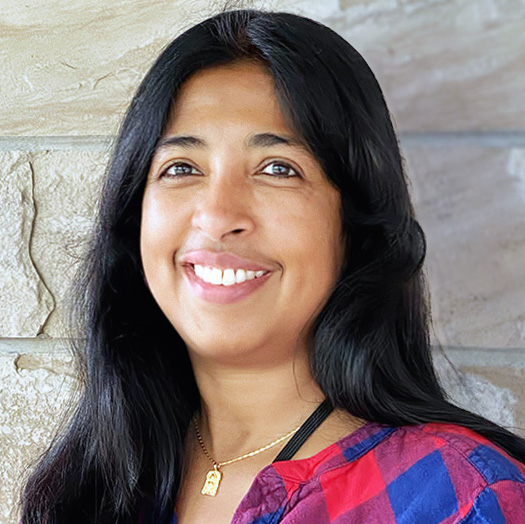University of Colorado Cancer Center members Moumita Ghosh, PhD, and Eric Clambey, PhD, have received a grant from the American Lung Association (ALA) to study how epithelial progenitor cells and immune cells may impact each other to shape the outcome of lung cancer.
The ALA Lung Cancer Discovery Award will fund Ghosh’s and Clambey’s examination of cancerous and noncancerous lung tissue removed from lung cancer patients during surgery. Their goal is to find the biological changes that happen in the lung when cancer begins to develop.
Detection for prevention
“Only 18% of people will survive for five years after a lung cancer diagnosis, meaning that 72 people out of 100 will die within five years, and that particular statistic hasn't really changed much over the past few decades,” Ghosh says. “Our group is involved in identifying different markers that would help us to detect lung cancer before cancer actually happens.”
The research combines Ghosh’s expertise in epithelial stem cells with Clambey’s immunology background as the two look at how epithelial progenitor stem cells — the protective cells that help make up the lining of the lung called the epithelium — interact with immune cells during cancer development. Their hypothesis is that loss of normal epithelial progenitor function during carcinogenesis occurs through two mechanisms: cell-intrinsic changes in epithelial progenitors; and immune cell-driven changes that impair epithelial progenitor function.
“Lung cancer cells start as epithelial cells, but when you look at the tumor microenvironment, which contains immune cells — clearly, those immune cells did not kill those cancer cells,” Ghosh says. “We are looking at how these cancer cells survive in the presence of immune cells, whose job is to kill bad things.”
By comparing tumor cells to noncancerous lung cells from the same patient, Ghosh and Clambey hope to better understand how cancer cells act on immune cells to impair the ability of healthy epithelial cells to grow, further promoting the growth of the cancer. They are working with colleagues at the Rocky Mountain Regional VA Medical Center to identify patients and take samples of lung tissue after surgery.
“Ultimately, we're hoping we can identify changes in how cells communicate within the tumor-bearing lung,” says Clambey, director of the Flow Cytometry Shared Resource within the CU Cancer Center. “We can then try to manipulate that to prevent those detrimental changes that are allowing the cancer to grow, enhancing normal repair mechanisms to continue to promote a healthy lung and to reduce the risk of lung cancer.”
Finding new targets
Another goal is to determine epithelial progenitor function using organoid formation in the presence or absence of immune cells purified from malignant or uninvolved tissues. These studies will allow the researchers to directly investigate the impact of multiple processes on epithelial progenitor function in lung cancer and identify critical signals that can be targeted for therapy.
“There are a number of drugs that have been developed that can influence the ability of the immune system to recognize cancer,” Clambey says. “One of our colleagues at the VA has an ongoing clinical trial where they're testing immunomodulatory drugs in the context of premalignancy. The goal of these types of studies is to engage the immune system so that people who are at high risk for developing lung cancer are less likely to develop cancer. Our study could either identify some of those similar pathways or identify new pathways that might be worth targeting with drugs or antibodies.”
Ultimately, Ghosh and Clambey hope that by bringing their unique expertise together, their research will give insights into how lung cancer is controlled and help identify new approaches to stop cancer before it occurs.





